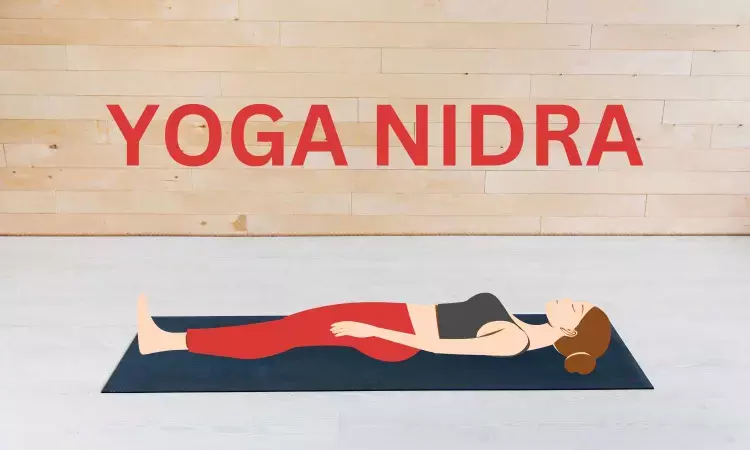- Home
- Medical news & Guidelines
- Anesthesiology
- Cardiology and CTVS
- Critical Care
- Dentistry
- Dermatology
- Diabetes and Endocrinology
- ENT
- Gastroenterology
- Medicine
- Nephrology
- Neurology
- Obstretics-Gynaecology
- Oncology
- Ophthalmology
- Orthopaedics
- Pediatrics-Neonatology
- Psychiatry
- Pulmonology
- Radiology
- Surgery
- Urology
- Laboratory Medicine
- Diet
- Nursing
- Paramedical
- Physiotherapy
- Health news
- Fact Check
- Bone Health Fact Check
- Brain Health Fact Check
- Cancer Related Fact Check
- Child Care Fact Check
- Dental and oral health fact check
- Diabetes and metabolic health fact check
- Diet and Nutrition Fact Check
- Eye and ENT Care Fact Check
- Fitness fact check
- Gut health fact check
- Heart health fact check
- Kidney health fact check
- Medical education fact check
- Men's health fact check
- Respiratory fact check
- Skin and hair care fact check
- Vaccine and Immunization fact check
- Women's health fact check
- AYUSH
- State News
- Andaman and Nicobar Islands
- Andhra Pradesh
- Arunachal Pradesh
- Assam
- Bihar
- Chandigarh
- Chattisgarh
- Dadra and Nagar Haveli
- Daman and Diu
- Delhi
- Goa
- Gujarat
- Haryana
- Himachal Pradesh
- Jammu & Kashmir
- Jharkhand
- Karnataka
- Kerala
- Ladakh
- Lakshadweep
- Madhya Pradesh
- Maharashtra
- Manipur
- Meghalaya
- Mizoram
- Nagaland
- Odisha
- Puducherry
- Punjab
- Rajasthan
- Sikkim
- Tamil Nadu
- Telangana
- Tripura
- Uttar Pradesh
- Uttrakhand
- West Bengal
- Medical Education
- Industry
Yoga Nidra practice may improve sleep, memory, and cognition: Study

India: Yoga Nidra practice can improve cognitive processing and night-time sleep, a recent study published in PLOS ONE has revealed. Yoga Nidra is a kind of mindfulness training.
"Practicing yoga nidra might improve sleep, cognition, learning, and memory, even in novices, "Karuna Datta of the Armed Forces Medical College in India, and colleagues wrote in their pilot study. After a two-week intervention with a cohort of novice practitioners, the researchers found that the percentage of delta-waves in deep sleep increased and that all tested cognitive abilities improved.
Unlike more active forms of yoga, which focus on physical postures, breathing, and muscle control, yoga nidra guides people into a state of conscious relaxation while they are lying down.
While it has been reported to improve sleep and cognitive ability, those reports were based more on subjective measures than on objective data.
The new study used objective polysomnographic measures of sleep and a battery of cognitive tests.
Measurements were taken before and after two weeks of yoga nidra practice, which was carried out during the daytime using a 20-minute audio recording.
Among other things, polysomnography measures brain activity to determine how long each sleep stage lasts and how frequently each stage occurs.
After two weeks of yoga nidra, the researchers observed that participants exhibited a significantly increased sleep efficiency and percentage of delta-waves in deep sleep.
They also saw faster responses in all cognitive tests with no loss in accuracy and faster and more accurate responses in tasks including tests of working memory, abstraction, fear and anger recognition, and spatial learning and memory tasks.
The findings support previous studies which link delta-wave sleep to improved sleep quality as well as better attention and memory.
The authors believe their study provides objective evidence that yoga nidra is an effective means of improving sleep quality and cognitive performance.
Yoga nidra is a low-cost and highly accessible activity from which many people might therefore benefit.
The authors add: "Yoga nidra practice improves sleep and makes brain processing faster. Accuracy also increased, especially with learning and memory related tasks."
Reference:
Karuna Datta, Anna Bhutambare, Mamatha V. L., Yogita Narawa, Rajagopal Srinath, Madhuri Kanitkar. Improved sleep, cognitive processing and enhanced learning and memory task accuracy with Yoga nidra practice in novices. PLOS ONE, 2023; 18 (12): e0294678 DOI: 10.1371/journal.pone.0294678.
Dr Kamal Kant Kohli-MBBS, DTCD- a chest specialist with more than 30 years of practice and a flair for writing clinical articles, Dr Kamal Kant Kohli joined Medical Dialogues as a Chief Editor of Medical News. Besides writing articles, as an editor, he proofreads and verifies all the medical content published on Medical Dialogues including those coming from journals, studies,medical conferences,guidelines etc. Email: drkohli@medicaldialogues.in. Contact no. 011-43720751


